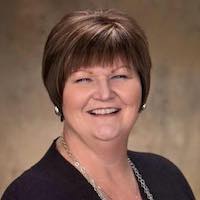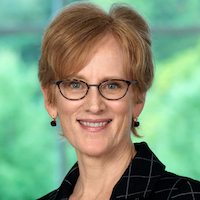Three Leaders on Women in the Workplace

Featuring Fresenius Medical Care North America
Meet three female leaders at Fresenius and check out their perspectives on their long careers:
Building a Strong Career Path

Four years ago, she accepted an enterprise role to lead a staff of more than 8,000 professionals who were responsible for clinical services, clinical quality, education, regulatory affairs, biomedical services, disaster planning and preparedness and support services for the more than, 2,300 clinics at Fresenius Kidney Care.
“I’ve always enjoyed leadership,” says Harvey, a registered professional nurse prior to joining the company. “Originally, I envisioned more of a nursing leadership role, but early on I discovered that I was very interested in the business aspects of healthcare. So, when I was given the opportunity 29 years ago, to become a business leader, I took it.
“I never felt in any way that being a woman hindered me at FMCNA and I have been recognized for my contributions.
“To other women in business, I say don’t compromise, be strong, maintain your integrity and never forget you are a professional.”
Senior Leadership Support for Professional Development of Women

She joined FMCNA in 2014 after serving as outside counsel to the company for 18 years.
Gledhill said her recent involvement with the company’s “Women Employee Resource Group” (WERG) has been both rewarding and inspiring because it provides a new forum for dialog and networking among women in the company, and opens a door to professional development.
“In less than six months, WERG has gained widespread endorsement by our senior leadership team as well as our members,” Gledhill says. “Some of our members seek to gain professional development and advancement from participating. Others seek support in balancing their family life and their work life, and others want a social, personal connection with their colleagues.
“This group is designed to tap into our most important resource—our people. Through WERG, I have met more of my outstanding colleagues and have learned and grown through the experience.”
Striking a Balance as an M.D.

Looking back on her career, she says that she always wanted to be a doctor, but becoming a nephrologist resulted from taking opportunities as they came—and recognizing her affinity for the continuous care and treatment that nephrology patients require.
“Unlike some medical services, chronic kidney disease care often leads to a patient and physician relationship that is constant and unfolding over time,” she explains. “I enjoy the continuity of care aspect.
“It was also very interesting to be a female nephrologist because many of the nurses I work with are women and most of the physicians are men. I can easily relate to the other women’s concerns about how their work impacts their family and home life.
“I did not imagine my career path when I was 20 or 25 years old. Every step along the way added to a broad accumulation of experiences. I couldn’t do my job today without all that.”
As challenging as the push and pull between her work and her family can be, she adds, “in the end, it is all worth it.”
Sponsored by
